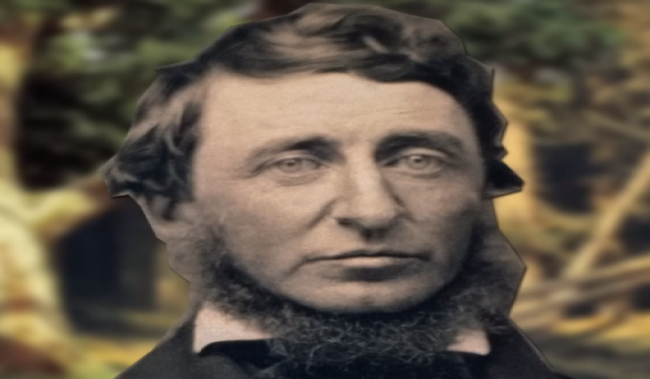Major Influence on Walt Whitman and Henry David Thoreau: A Journey into Transcendentalism

Walt Whitman and Henry David Thoreau are towering figures in American literature, each having made indelible marks with their unique voices and philosophies. Their works, deeply entrenched in the transcendentalist movement, reflect a profound connection to nature, individualism, and self-reliance. This article delves into the major influences on these two literary icons, exploring how transcendentalism, Romanticism, and their personal experiences shaped their revolutionary contributions to literature and philosophy.
The Transcendentalist Movement
Origins and Principles
Transcendentalism emerged in the early 19th century as a reaction against the rigid rationalism of the Enlightenment and the formalized religion of the time. Rooted in Romanticism, it emphasized intuition, spirituality, and the inherent goodness of people and nature. Central to this movement was the belief that individuals could transcend the physical world and experience higher truths through intuition and personal insight.
Ralph Waldo Emerson: The Guiding Light
Emerson’s Influence on Whitman
Ralph Waldo Emerson, often considered the father of transcendentalism, had a profound impact on both Whitman and Thoreau. Emerson’s essay “Self-Reliance” and his other writings emphasized the importance of individuality and personal intuition. Whitman, who revered Emerson, was inspired by these ideas to craft his seminal work, “Leaves of Grass.” In this collection, Whitman celebrates the self and the collective human spirit, echoing Emerson’s call for an authentic and self-reliant life.
Whitman once remarked that Emerson brought him to a boil, helping him realize his poetic potential. This influence is evident in Whitman’s embrace of free verse and his bold, unapologetic celebration of the human experience.
Emerson’s Influence on Thoreau
Thoreau was not only Emerson’s protégé but also his neighbor and close friend. Emerson’s philosophy deeply influenced Thoreau’s thoughts and writings. Thoreau’s commitment to living authentically and his experiments in simple living at Walden Pond were direct applications of Emerson’s principles. In his book “Walden,” Thoreau explores themes of simplicity, self-sufficiency, and the deep connection between nature and the human spirit, embodying the transcendentalist ideals promoted by Emerson.
Nature as a Teacher
Whitman’s Natural Inspiration
Whitman’s poetry is imbued with a profound love for nature, which he saw as a source of inspiration and spiritual nourishment. His works often depict the natural world as a reflection of the human soul, emphasizing the interconnectedness of all living things. Whitman’s experiences in the natural landscapes of America, from its bustling cities to its serene countrysides, shaped his poetic vision and reinforced his belief in the sanctity of nature.
Thoreau’s Wilderness Philosophy
For Thoreau, nature was not just a backdrop but a central character in his philosophical explorations. His time at Walden Pond was an experiment in living deliberately, away from the distractions of society. Thoreau’s writings reveal a deep reverence for the natural world, which he viewed as a source of wisdom and moral guidance. His famous essay “Civil Disobedience,” while primarily political, also reflects his belief in the importance of staying true to one’s natural conscience.
Romanticism and Individualism
Romantic Elements in Whitman’s Poetry
Romanticism, with its emphasis on emotion, individualism, and the sublime beauty of nature, significantly influenced Whitman’s work. His poems often celebrate the individual’s experience and emotions, portraying them as integral parts of the larger human tapestry. Whitman’s use of free verse and his unconventional poetic style broke away from traditional forms, embodying the Romantic spirit of innovation and personal expression.
Thoreau’s Romantic Legacy
Thoreau’s writings also bear the hallmarks of Romanticism. His detailed observations of nature, his philosophical musings, and his emphasis on personal intuition and conscience all reflect Romantic ideals. Thoreau’s work encourages readers to look inward and seek personal transformation through a deeper connection with nature and a commitment to living authentically.
Personal Experiences and Societal Context
Whitman’s Urban Inspirations
Whitman’s experiences in the rapidly growing and changing cities of 19th-century America profoundly influenced his work. He was deeply affected by the diversity and dynamism of urban life, which he captured in his poetry. The vibrancy of the cities, the struggles of the working class, and the complexities of modern life all find expression in Whitman’s verses, adding depth and breadth to his celebration of the human spirit.
Thoreau’s Social and Political Activism
Thoreau’s personal experiences, particularly his acts of civil disobedience, were pivotal in shaping his philosophical outlook. His arrest for refusing to pay a poll tax in protest against slavery and the Mexican-American War led to his writing “Civil Disobedience.” This essay not only outlines his political philosophy but also underscores his commitment to acting according to his principles, even in the face of societal opposition.
Literary Impact and Legacy
Whitman’s Revolutionary Poetic Form
Whitman’s innovative use of free verse and his expansive, inclusive vision of America had a lasting impact on poetry. His work paved the way for future generations of poets to explore new forms and themes, breaking free from the constraints of traditional poetic structures. Whitman’s celebration of democracy, individuality, and the human experience continues to resonate with readers and writers alike.
Thoreau’s Enduring Philosophy
Thoreau’s ideas about simple living, self-reliance, and civil disobedience have inspired countless individuals and movements. His influence can be seen in the works of later writers, activists, and environmentalists. Thoreau’s call to live authentically and in harmony with nature remains relevant, encouraging people to question societal norms and seek deeper, more meaningful lives.
Conclusion
The major influences on Walt Whitman and Henry David Thoreau, particularly the transcendentalist movement and the teachings of Ralph Waldo Emerson, shaped their revolutionary contributions to literature and philosophy. Their works reflect a profound connection to nature, individualism, and the human spirit, leaving a lasting legacy that continues to inspire and challenge readers. By understanding the forces that shaped these literary giants, we gain deeper insight into their enduring impact on American thought and culture.

